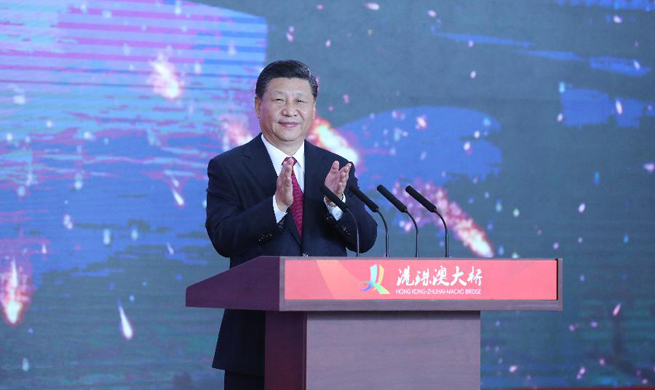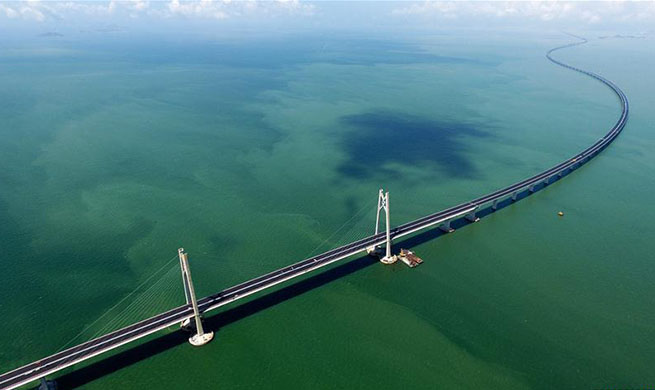BERLIN, Oct. 23 (Xinhua) -- A large majority of German citizens are dissatisfied with a new "dieselgate" policy initiative of Chancellor Angela Merkel (CDU) to prevent driving bans in cities, a YouGov opinion poll published on Tuesday by the German press agency (dpa) finds.
Nearly two thirds of respondents (65 percent) indicated that Merkel was not acting decisively enough to protect the interests of diesel drivers. A further 72 percent said they had no faith that the federal government and automotive industry would eventually reach a compromise to prevent driving bans as a last resort to improve urban air quality.
The findings were based on a representative online survey of 2,043 voters in Germany which was conducted by the YouGov institute.
Merkel has recently announced that the Christian Democratic Union (CDU) would seek to pass legislation to prevent the widespread imposition of diesel driving bans in German cities. The party considered outright bans on diesel vehicles to be a disproportionate in most cases and would instead advocate for a change to relevant laws in a way which re-directed policy efforts towards other, less radical, solutions.
The chancellor's announcement came just a few weeks after the ruling "grand coalition" unveiled a further "dieselgate" policy package aimed to lower Nitrogen Oxide (NOx) emissions in 14 particularly-affected cities with fleet renewal incentives and technical retrofitting, so-called "hardware upgrades", of vehicles. Carmakers have so far made little signs offering their support to hardware upgrades, however, raising doubts over whether court-ordered diesel driving bans in Hamburg, Berlin, Stuttgart and Frankfurt can still be averted.
The YouGov survey on Tuesday suggested that voters had mixed feelings about the latest measures adopted by the government in response to the diesel emissions scandal. Around two thirds (66 percent) considered technical retrofitting to be "sensible or very sensible", while only 37 percent gave the same seal of approval to fleet-renewal incentives such as "swapping premiums" and other sales discounts.
When asked in the poll to give two responses, the biggest concern of citizens identified in the context of the "dieselgate" scandal was clean air in German cities (48 percent). Meanwhile, 37 percent said that driving bans were the biggest problem created by high NOx emissions levels, ahead of depreciations in the value of older diesel vehicles (32 percent).
The results were released ahead of a closely-watched regional elections in the state of Hesse this weekend, where the grand coalition parties CDU and German Social Democrats (SPD) are both predicted to suffer heavy losses in voter share. Fresh court deliberations over another potential diesel driving ban in the city of Mainz are scheduled to open Wednesday.













